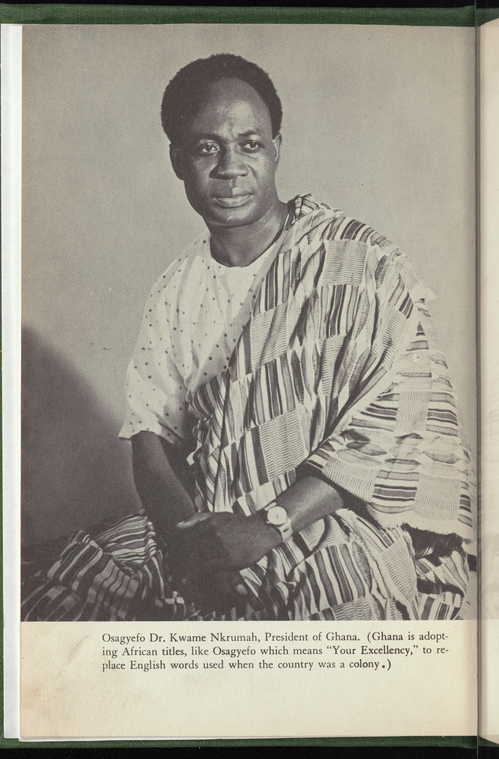Reference and African Studies Librarian

Jean Blackwell Hutson Research & Reference Division
Kwame Nkrumah at a Glance
Kwame Nkrumah was a brilliant political and revolutionary figure, internationally recognized as a leading philosopher of Pan-Africanism. Many decades after he died in 1972, Nkrumah’s anti-imperialist ideologies and activities still earned him recognition as an iconic symbol and a prominent motivating force in the struggles for the liberation and independence of African colonies in the 1950s and 1960s. After studying in the United States and Britain, Nkrumah returned home to Ghana (then Gold Coast colony) in 1947, and immediately became a significant revolutionary and radical force of resistance against colonial imperialism. First, as general secretary of the United Gold Coast Convention (UGCC) party, and later the founder of the more radical Convention People’s Party (CPP), Nkrumah suffered arrests and imprisonment due to the occurrence of extensive riots and resistance activities. Eventually, he became the first Prime Minister of Ghana (former British Gold Coast colony and British Togoland) at independence in 1957, and later the first president of Ghana as a republic in 1960. Nkrumah was ousted in Ghana's first military coup in 1966 and went into exile in Guinea where he lived until he died of cancer in a hospital in Bucharest, Romania, on April 27, 1972. He is widely remembered for his legendary role as a pioneer of African liberation.
